Service Before Self: Honoring Veterans at Progress

Although we aim to honor those who have been willing to serve their country every day, Veterans Day offers us a special opportunity to pause and pay respect to the people who have so selflessly protected and defended our country. And at Progress, we are proud to have a number of military veterans serving in our ranks, bringing their unique perspectives and experiences to our organization and our clients.
In celebration of veterans all over the world and right here at Progress, we spoke with some of our veterans, asking them about their service and how their military experiences influence their day-to-day work. Here’s what they had to say.
Keith Baranowski, business development specialist
“I joined the Army on December 26, 2006—and I’ll be honest, I was at a pretty low point in my life, really struggling in school. I’d always wanted to go into the military, so I signed up for the Army and worked in field artillery; I got to shoot off the big cannons [laughs]. I served overseas from December 2009 through January 2011, and finished my service in 2012.
When I got out of the service, I worked a number of different jobs—warehouse jobs, delivery jobs, construction jobs—but these physical jobs put a lot of wear on my body, which was compounded by the disabilities I suffered while in the military. My friend Drew, who happened to work on the Sitefinity team, convinced me to fix up my resume and apply, and Progress brought me on board.
The skills I learned in the military that best translate to my work at Progress are discipline and attention to detail. You want me to focus on something for eight hours? No problem. The military is all about focus and paying attention to even the tiniest details, and that’s something I’m able to carry over to my job at Progress: to mind every detail so our prospective clients have everything they need to make an informed decision.”
See also: Q&A with veteran Mark Schafron
Steve Southwell, principal consultant, services
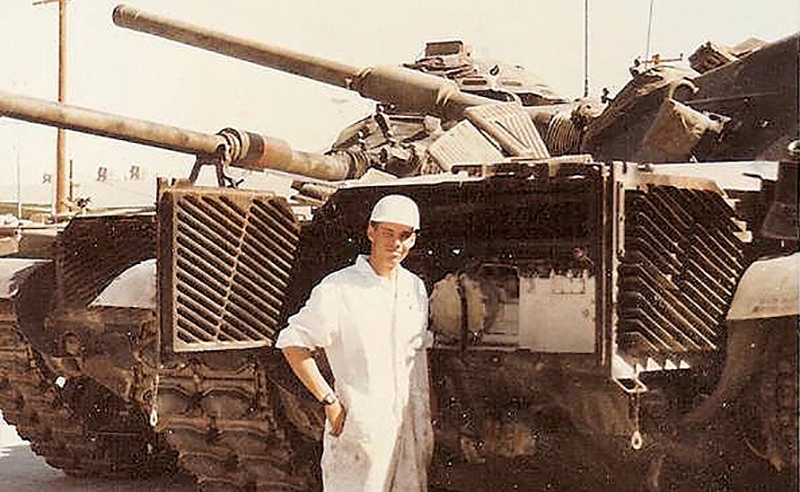
“I joined the Marine Corps reserves while I was still in high school; the summer of my junior year (1989) I went to Marine Corps boot camp, then came back for my last year of high school. Like everyone else, I started as a private. I worked as a tank mechanic, and was promoted up to sergeant before I got out.
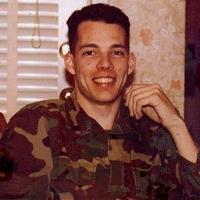 The big advantage to serving in the reserves was that it allowed me to go to college while I was in the military, using my veteran benefits and money earned from different jobs—like maintenance technician and scientific glass blower—to help pay my way through. I graduated with a degree in management and worked for a short time in a law firm before going to work for a software company and then a consulting firm (Bravepoint) which was acquired by Progress.
The big advantage to serving in the reserves was that it allowed me to go to college while I was in the military, using my veteran benefits and money earned from different jobs—like maintenance technician and scientific glass blower—to help pay my way through. I graduated with a degree in management and worked for a short time in a law firm before going to work for a software company and then a consulting firm (Bravepoint) which was acquired by Progress.
When I was in the military working on tanks—which are fairly complicated machines—there was no room for an answer of “I don’t know what’s wrong with it.” There was no room for excuses. You had to troubleshoot the issue and stay at it until you figured it out. I carry this through to the work I do every day at Progress; our clients come to us because they have problems, and they don’t want excuses, they just want it solved. I’m not content to say, “Sorry, I can’t get it to work.” I will stay with it until we find or create the solution.”
Glenn Mulno, senior manager, technical support
“I joined the Navy in 1981 at a time when there were still the echoes of the Vietnam War and the ‘70s Middle East crisis plus the Iran Hostage Crisis. My family had two of my siblings also serving. Military life was a good option for me at the time. I served in the Navy from 1982-86 as a petty officer 3rd class, sonar technician. As a sonar technician, if we weren’t maintaining equipment, we were on watch at the solar console, watching and listening for anything we couldn’t ID. Someone was watching and listening 24 hours a day, seven days a week.
 After the Navy, I went to college, earning my associate’s degree then my bachelor’s while I was working at a manufacturing company. I worked there for 10 years, then left to join Progress. When Progress moved my position to New Hampshire, the commute became untenable, so I went to work for another company closer to home. After several years however, I started to outgrow them, and started looking for another position. Lo and behold, Progress had a position that was a great fit—so I came back, and have now been back for nine-plus years.
After the Navy, I went to college, earning my associate’s degree then my bachelor’s while I was working at a manufacturing company. I worked there for 10 years, then left to join Progress. When Progress moved my position to New Hampshire, the commute became untenable, so I went to work for another company closer to home. After several years however, I started to outgrow them, and started looking for another position. Lo and behold, Progress had a position that was a great fit—so I came back, and have now been back for nine-plus years.
In the Navy, I was a sonar technician, working on equipment to maintain it and keep it running efficiently. I performed a lot of testing and troubleshooting to get it working right—and in a sense, that carried through my career. As a sonar technician, the whole transition made a lot of sense; from QA to QE to Technical Support, it’s all about helping people do their jobs better.“
Tommy Martinez, senior account executive
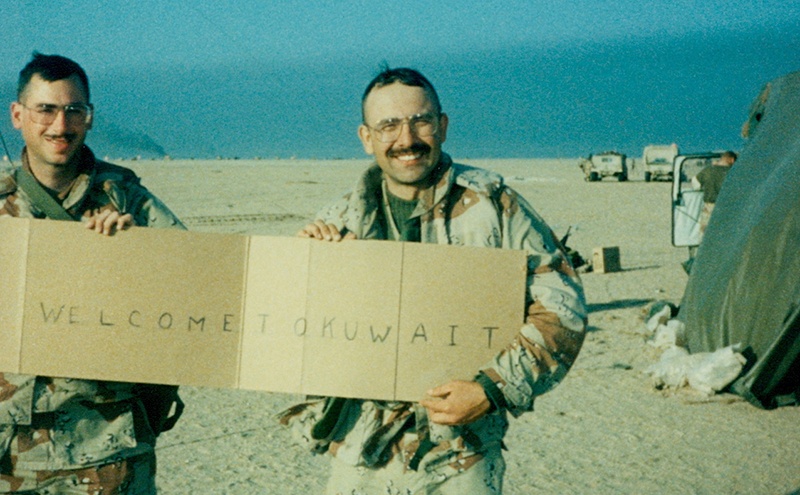
“Right out of high school, I went to the U.S. Naval Academy in Maryland, then served as a Marine Corps artillery officer. I left active duty in 1983 and joined the civilian world, but stayed in the Marine Corps reserves and saw combat in Desert Shield/Desert Storm. I took a job with HP in its optoelectronics division, working there for several years before moving on to other jobs, including working with microelectronics and semiconductors.
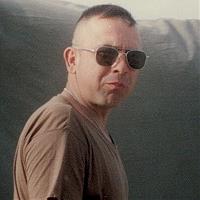 Wanting a job that didn’t require as much travel, I ended up going to work for software company Red Hat and stayed there for six years before hiring manager Dave Waller lured me away to Progress in 2014.
Wanting a job that didn’t require as much travel, I ended up going to work for software company Red Hat and stayed there for six years before hiring manager Dave Waller lured me away to Progress in 2014.
One of the things the military taught me that really carries over into my work at Progress is the importance of taking care of your people. It’s important you establish goals and share them with people so you can get buy in and get everyone to work together. You can’t walk into a business and demand something—you have to persuade.”
Mark Singh, senior sales engineer
“From 1994-98, I served in the Army as a quartermaster working with the supply unit, ensuring it was mission-ready. I did deployments to the Middle East and worked with NATO during the Bosnian wars, serving on peacekeeping missions in Sarajevo before ending my service contract.
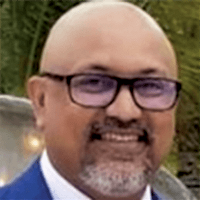 In 1998, I was working for an ecommerce company—and like a lot of tech companies at that time, we were a victim of the dot com bubble bust. A friend of mine worked for Ipswitch and let me know about an open tech support position; I was there for eight years before Progress acquired us in 2019.
In 1998, I was working for an ecommerce company—and like a lot of tech companies at that time, we were a victim of the dot com bubble bust. A friend of mine worked for Ipswitch and let me know about an open tech support position; I was there for eight years before Progress acquired us in 2019.
The Army got me into IT and learning how to use software. In my work in the Army, I was using military-developed software to do things like keep track of inventory and build reports for commanders. As Progress focuses on reporting on inventory and status of devices, my military experience was a great setup for transitioning from one technology to the next.”
Sacrifice and service
Progress (and our clients) are fortunate to benefit from the rich experiences that our veterans bring. As we celebrate Veterans Day, all of us at Progress want to extend a heartfelt “thank you” to our veterans and veterans across the globe. We honor your sacrifice and service.

